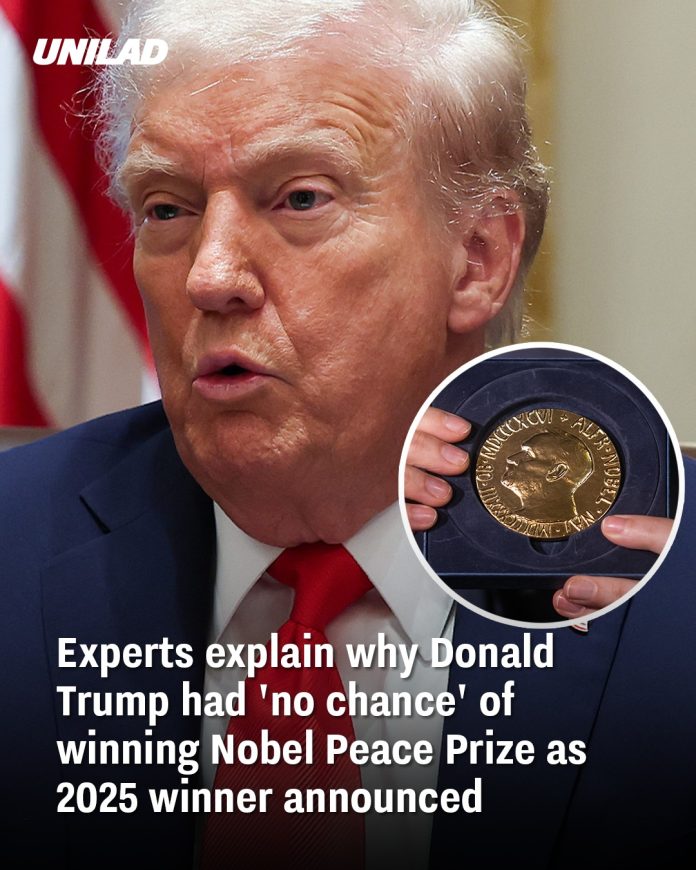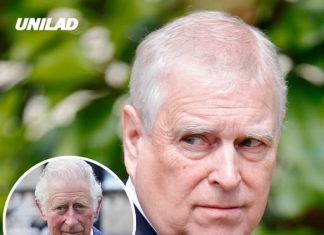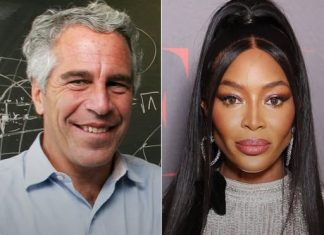Donald Trump had long insisted that he “deserves” a Nobel Peace Prize, often referencing his diplomatic efforts and claims of brokering peace deals. As the 2025 Nobel Peace Prize winner was announced, his supporters waited expectantly. But despite his vocal campaign, Trump was not chosen. Instead, the honor went to María Corina Machado, a Venezuelan opposition leader recognized for her commitment to democratic values and peaceful transitions in her country.
Experts Cite Fundamental Mismatches
Once the winner was revealed, analysts and Nobel scholars weighed in on why Trump was never a serious contender. One key point they raised: being nominated does not equate to fulfilling the substantive criteria laid out in Alfred Nobel’s will. Several experts argued that Trump’s public statements and self-promotion failed to align with the core goals of fostering lasting peace, especially when his record included many polarizing actions. Another critique centered on timing. The Nobel Committee typically evaluates achievements within a defined period, and much of Trump’s high-profile activities occurred after that window or coincided with controversial policies. Some alleged that certain nominations submitted on his behalf came late and thus may not have met procedural deadlines. Others observed that his broader domestic and foreign record—marked by conflict and division—undermined his bid more than any specific peace efforts could bolster it.

Machado Takes the Prize, Redirecting Focus
While Trump’s hopes were dashed, María Corina Machado’s award drew attention to her quiet struggle inside Venezuela. Her work has long centered on opposing authoritarian practices, supporting democratic institutions, and advocating nonviolent change. The Nobel Committee’s decision praised her steadfast role in securing a just, peaceful transition in her homeland. Her win is seen not only as personal recognition but as a signal of international support for democracy in Venezuela. Her selection also reflects shifting global concerns: the committee emphasized that democracy under threat merits attention, including from nations that have undermined it themselves. Machado’s elevation to laureate places the spotlight on movements resisting authoritarian regimes and valorizes civilian courage amid political repression.
Reactions, Speculation, and Criticism
Unsurprisingly, reactions were swift. The White House criticized the Nobel Committee, accusing it of placing politics ahead of peace by overlooking Trump. Some aides and allies claimed bias, suggesting that the decision was influenced more by global sentiment than by merit. Others saw the outcome as a political rebuke to Trump’s claim of world-shaping diplomatic influence. International leaders weighed in too. In Moscow, Vladimir Putin both congratulated Trump and praised his efforts in Crimea, Gaza, and Ukraine, even as he acknowledged that the Nobel Committee’s decision is “not his affair.” Meanwhile, some Israeli officials had publicly backed Trump for the prize, citing his mediation role in Middle East exchanges. Their disappointment was unsurprising. Some observers also noted a wider public sentiment: polls show a considerable portion of the American population believed Trump had not earned such a distinction, citing concerns over his conduct and policy contradictions. The discrepancy between public pressure and the Nobel Committee’s criteria revealed the gap between activism or ambition and institutional standards.

A Defining Moment in Verging Narratives
For Trump, the loss may mark a symbolic moment: despite his bold self-assertions, the international arbiter of peace declined to validate them. His campaign underscores a modern tension: can ambition and rhetoric alone suffice in an elite process grounded in long-term impact and moral consistency? His failure to claim the prize suggests the latter holds sway in this unique calculation. Meanwhile, Machado’s rise presents a narrative of resilience: a laureate chosen for steadfast dedication in the face of repression, rather than for dramatic posturing. Her award may reshape conversations about legitimacy, national struggle, and the meaning of peace in contested societies. In that contrast lies perhaps the most lasting message of this year’s Nobel decision.

















